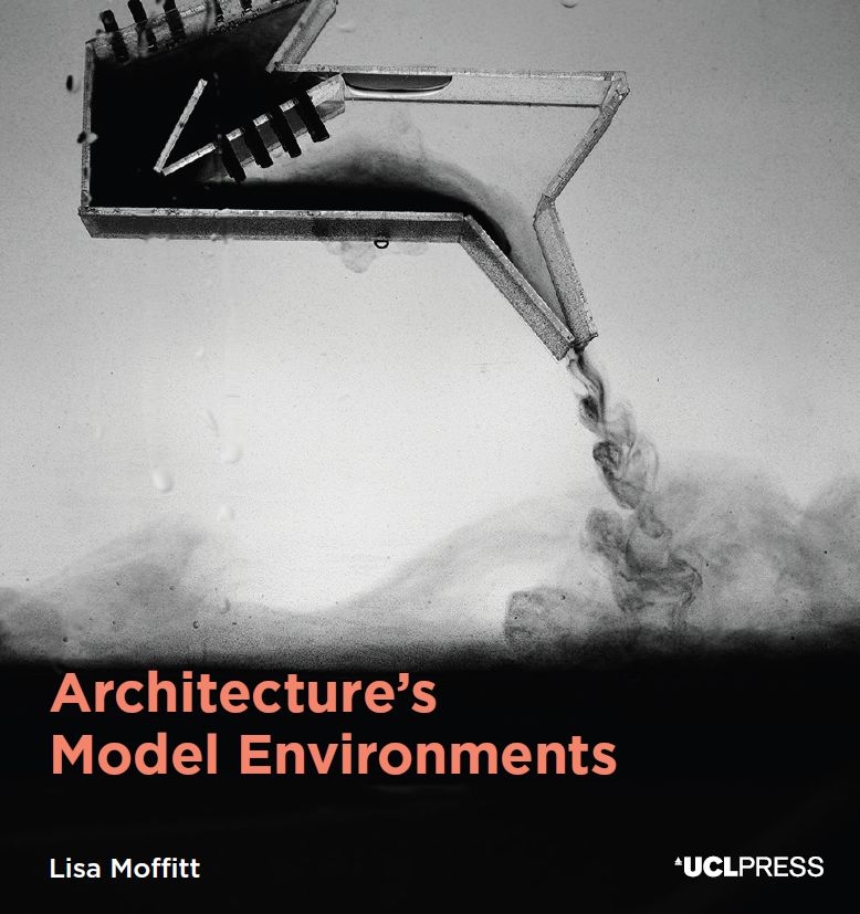Distributed for UCL Press
Architecture’s Model Environments
An exploration of the architectural model as a tool for design speculation in history.
Making innovative use of the distilling lens of the architectural model, Architecture’s Model Environments is a novel and far-reaching exploration of the many dialogues buildings have with their environmental surroundings. Expanding on histories of building technology, the book sheds new light on how physical models, conventionally understood as engineering experimentation devices, enable architectural design speculation. The book begins with a catalog of ten original model prototypes—of wind tunnels, water tables, and filling boxes—and is the first of its kind to establish an architectural approach to fabricating such environmental models. Subsequent chapters feature three precedent models that have been largely overlooked within the wider oeuvres of their authors: French polymath Étienne-Jules Marey’s wind tunnels, Hungarian-American architects Victor and Aladár Olgyay’s thermoheliodon, and Scottish chemist and building ventilation expert David Boswell “The Ventilator” Reid’s test tube convection experiments. Moving between historic moments and the present day, between case studies and original prototypes, the book reveals the potent ability of models, as both physical artifacts and mental ideals, to reflect prevailing cultural views about the world and to even reshape those views.
Making innovative use of the distilling lens of the architectural model, Architecture’s Model Environments is a novel and far-reaching exploration of the many dialogues buildings have with their environmental surroundings. Expanding on histories of building technology, the book sheds new light on how physical models, conventionally understood as engineering experimentation devices, enable architectural design speculation. The book begins with a catalog of ten original model prototypes—of wind tunnels, water tables, and filling boxes—and is the first of its kind to establish an architectural approach to fabricating such environmental models. Subsequent chapters feature three precedent models that have been largely overlooked within the wider oeuvres of their authors: French polymath Étienne-Jules Marey’s wind tunnels, Hungarian-American architects Victor and Aladár Olgyay’s thermoheliodon, and Scottish chemist and building ventilation expert David Boswell “The Ventilator” Reid’s test tube convection experiments. Moving between historic moments and the present day, between case studies and original prototypes, the book reveals the potent ability of models, as both physical artifacts and mental ideals, to reflect prevailing cultural views about the world and to even reshape those views.
246 pages | 186 color plates | 6.14 x 9.21 | © 2023
Design Research in Architecture
Architecture: Architecture--Criticism
Table of Contents
Acknowledgements 1. Environmental models Wind Grid Environmental models Architecture models Overview 2. Prototypes Wind tunnels Watertables Filling boxes 3. Streamlines and vortices Mareys wind tunnels Flow visualisation Drawing turbulence Modelling streamlines From streamlines to streamlining 4. Climate control The Olgyays thermoheliodon Two model environments Two architectural models Models of environmental design Nested environments 5. Plumes Reids convection experiments Architecture as experiment Thermodynamic figures Persistent Ieaks 6. Model environments Resistance Diminution Buoyancy Bibliography Index Back Cover

